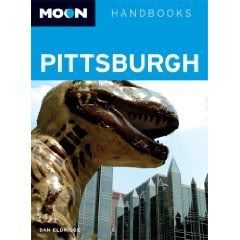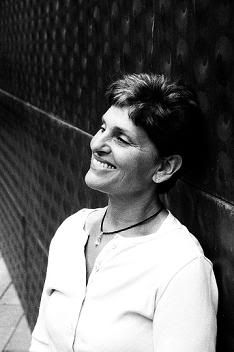 Kim Brittingham is the author of the memoir Read My Hips: How I Learned to Love My Body, Ditch Dieting and Live Large, which was released in May. A fabulous example of working a day job, while pursuing your dreams, Brittingham still works by day as a legal secretary in New York City.
Kim Brittingham is the author of the memoir Read My Hips: How I Learned to Love My Body, Ditch Dieting and Live Large, which was released in May. A fabulous example of working a day job, while pursuing your dreams, Brittingham still works by day as a legal secretary in New York City.
Why did you write Read my Hips?
I didn’t originally plan to write a book about dieting and body image, although I’m certainly glad I did. I’d written an entirely different memoir a few years back. But when I met my agent, she pointed out that every time I published an essay online about weight-related issues, I got a hugely positive response. It was her suggestion to build an entire book around those essays, so I did.
What was your process for writing Read My Hips? Getting it published?
I wrote most of it while working as a legal secretary in New York City. I wrote in 45-minute increments on my lunch hour in the office kitchen. I had a crappy second-hand laptop I bought on eBay, and day after day I plugged it in and tapped away.
I feel very lucky in the way Read My Hips got published. I had written an essay called “Fat is Contagious,” detailing an informal social experiment I conducted on the buses of New York City. (I made a very real-looking but fake book cover with the title Fat is Contagious: How Sitting Next to a Fat Person Can Make YOU Fat, and I pretended to read it while riding public transportation.) I was interviewed about it on the Today Show, and that helped bring me to the attention of the woman who would eventually become my fabulous literary agent. She helped me fill in the gaps of the book proposal I’d been working on, and held my hand through the process of pitching it to book publishers. The whole thing was very exciting.
When I was about 13 years old, I used to daydream about being an author, and I imagined walking into my publisher’s building, which was a Manhattan skyscraper with a lobby three stories tall. I pictured the publishing company’s name splashed across the back wall in giant letters. I also imagined a huge showcase on the wall with books displayed behind glass. And believe it or not, the day my agent took me to meet the editor who would eventually work on Read My Hips, the building looked just like that! RANDOM HOUSE was spelled out across the lobby wall and there really was a huge lit-up showcase filled with books. An incredibly satisfying moment.
What was your favorite part of writing Read My Hips?
I guess my favorite part was the sense of purpose I felt when I sat down and wrote. I wasn’t madly in love with my day job. There wasn’t much in the way of creativity or passion involved. So when I took time out of the day to nurture that, it made a huge difference in how I tolerated everything else. And it felt good to say, hey, I’m not just sitting there complaining that my life isn’t what I wanted it to be; I’m doing something about it. The minute you sit down and start writing, you’re a writer. No one can take that away from you. Your life is transformed.
The greatest challenge?
I can remember needing to fill in about 20,000 words to really round out the manuscript. At that point the book was sold and I was working with my editor, and some large parts of the original manuscript had been cut. So I had to come up with new stuff. I remember taking a writing break and throwing myself on the sofa and whining, But I’ve already said everything I have to say about this issue! It was frustrating; I felt so tapped out. It wasn’t entirely true, though. Even now I’m thinking of more and more things I can say about weight and body image. But it was my state of mind. I probably needed a vacation! I also find revision much more difficult than writing. But during the process of revising Read My Hips, I got really good at letting go. I no longer have any qualms about ripping out entire paragraphs and trashing them without looking back. If it’s the right thing for the greater good of the piece, do it and move on.
It was such a personal story – how did you decide what to include and what to eliminate?
I didn’t hold back anything in particular. My editor suggested cutting certain chapters because she felt they were only indirectly related to body image or weight issues. But I don’t have a problem getting personal. I think I was much more private 20 years ago.
 Do you have advice for people who want to write about their personal life and send it out to the universe?
Do you have advice for people who want to write about their personal life and send it out to the universe?
I do have some advice, and it relates to the reason why I seldom get embarrassed by something I did or said in the past. We are constantly learning and evolving. I’m not the same person I was last year, last month or even yesterday. Every experience, every observation and moment of reflection brings us to a new place. So if you did something yesterday that you might not do again today, what’s the point in being embarrassed by it? You’re a work in progress. Just remembering that can really help you to relax around your own foibles. Or even just around your changing opinions. Too many people seem reluctant to change their opinions when they’ve learned something new. There’s no shame in it. It gets a bad rap when people sneer and call it “flip-flopping”, but actually, I think it’s a sign of intelligence. It shows you’re actually using your brain. You thought about something, and made a conscious decision to change direction.
Additional advice for writers?
If you want to be an author, your first and most important step is to write. Period. I know that sounds so obvious as to almost be stupid, but I can’t tell you how many people have asked me to help them get their book published, only to find out they haven’t actually written anything yet! Writing a book takes a lot of time and hard work, so maybe ask yourself: do you really want to write, or just want to enjoy having written? If you’re leaning more toward the latter, then maybe you’ve really just got a fantasy of what you think being an author is like. Writing is work. You have to love it. And it’s more than just writing. You need to be constantly working on your craft by going to workshops and classes, working with a mentor or writers’ group. And then if you do publish a book, you’ll need to become a public relations and marketing genius, too. So my advice is to get clear on what you think you want. It may save you a lot of grief later mourning what you didn’t accomplish – because maybe it wasn’t the right dream for you anyway, and maybe you overlooked something else that could have been.
What do you know now that you wish you knew when you first started writing?
That’s easy. I wish I’d known that being a successful writer isn’t about whittling away at a single page of prose for years at a time, striving for perfection or some kind of literary beauty that will have people swooning and starting religions in your name. If you want your writing to be read and enjoyed by other people, you need to be productive. You have to finish something. When I was a kid, I used to look at books and think, “How did they ever write so many words?” I didn’t know how I’d ever be able to do it.
What changed everything for me was participating in NaNoWriMo (National Novel Writing Month). It’s an annual event in which people from all over the world commit to finishing a 50,000-word draft of a novel within the month of November. There’s no time to second-guess yourself and nit-pick. You just have to plow ahead. …Nothing comes out perfectly the first time. … I know there are some writers out there who claim to write a near-perfect final draft on the first attempt, straight through. But that’s superhuman, if it’s true. I never really got it before NaNoWriMo … that big writing projects are built on a gloriously messy foundation. But once I really accepted that and put it into practice, my whole writing life changed forever.
Tags: Author Q&A Kim Brittingham NaNoWriMo Read My Hips Write On! Online









Comments are closed.
I love hearing about things that “once I really accepted that and put it into practice, my whole writing life changed forever.”
Thank you!